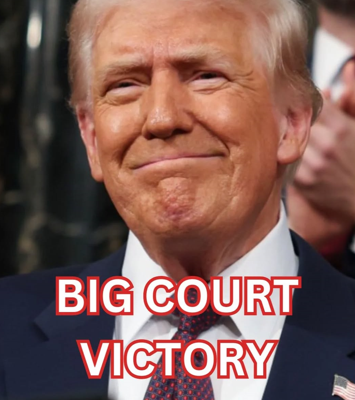On Friday, the U.S. Supreme Court permitted President Donald Trump’s administration to revoke the temporary legal status of hundreds of thousands of migrants from Venezuela, Cuba, Haiti, and Nicaragua residing in the United States, thereby endorsing the Republican president’s initiative to escalate deportations.
The court suspended the order issued by U.S. District Judge Indira Talwani in Boston, which had halted the administration’s efforts to terminate the immigration “parole” that had been granted to 532,000 of these migrants by former President Joe Biden. This decision potentially places many of them at risk of immediate removal while the case is adjudicated in lower courts.
The ruling was issued without a signature and did not provide justification, which is typical for emergency court orders. According to CNN, two of the court’s three liberal justices, Sonia Sotomayor and Ketanji Brown Jackson, formally dissented.
Immigration parole is a form of temporary authorization established by American law that allows entry into the country for “urgent humanitarian reasons or significant public benefit,” enabling recipients to live and work in the United States. President Biden, a Democrat, incorporated parole into his administration’s strategy aimed at deterring illegal immigration along the U.S.-Mexico border.
On January 20, the first day of his return to office, Trump signed an executive order that called for the abolition of humanitarian parole programs. Subsequently, in March, the Department of Homeland Security sought to end these programs by reducing the duration of the two-year parole grants. The government asserted that rescinding parole would facilitate the process of placing migrants into an “expedited removal” procedure.
This lawsuit is among numerous actions that the Trump administration has promptly filed with the Supreme Court, aiming to reverse decisions made by lower courts that obstruct his extensive initiatives, particularly those related to immigration.
On May 19, the Supreme Court permitted Trump to rescind a deportation protection known as temporary protected status, which had been granted by Biden to approximately 350,000 Venezuelans residing in the United States while the legal dispute was ongoing.
To reduce illegal border crossings, Biden declared in 2022 that Venezuelans who arrived in the United States by air could be eligible for a two-year parole, contingent upon passing security screenings and having a financial sponsor in the U.S.
In 2023, Biden broadened this procedure to encompass Cubans, Haitians, and Nicaraguans, as his administration faced significant numbers of illegal immigration from these nations.
The plaintiffs, consisting of a group of paroled migrants and their American sponsors, filed a lawsuit against administration officials, claiming that they had breached federal law governing the actions of government agencies.
In April, Talwani ruled that the statute governing such parole did not permit the program’s wholesale termination but instead mandated an individual assessment for each case.
The 1st U.S. Circuit Court of Appeals, based in Boston, chose not to stay the judge’s ruling.
In its submission, the Justice Department notified the Supreme Court that Talwani’s ruling had nullified “critical immigration policies that are meticulously designed to deter illegal entry,” effectively “reversing democratically sanctioned policies that were prominently featured in the November election” which led to Trump’s return to the presidency.
In a separate ruling, the Supreme Court garnered attention on Thursday with another significant decision.
The nation’s highest court on Thursday narrowed the requirements for environmental studies related to major infrastructure projects, which could expedite the permitting process for highways, airports, and pipelines.
This ruling represents yet another setback for environmental advocates at the conservative Supreme Court, which has recently dismantled regulations designed to safeguard wetlands and mitigate cross-state air pollution. President Donald Trump has frequently criticized the government’s environmental review process as excessively burdensome.
The National Environmental Policy Act, enacted by President Richard Nixon, is considered one of the cornerstone pieces of environmental legislation that emerged at the onset of the modern environmental movement.
The Supreme Court is issuing numerous pivotal rulings as it approaches the conclusion of its term at the end of June. The Trump administration is anticipating several important decisions.

